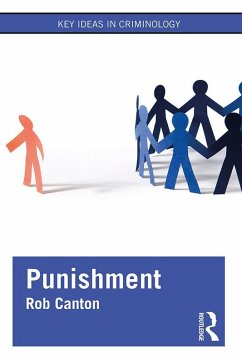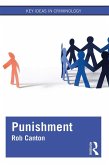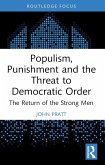Core contents include:
- Why punishment matters, the salience of emotions in its various discourses and the role of culture.
- The politicisation of punishment and legitimacy.
- The penal system, the prominence of the prison in research on punishment and the role of community sanctions.
- The aims of punishment, its limits and the role of power.
- The ethics of punishment and human rights.
- Punishment and social order.
This book is essential reading for all criminologists, as well as students taking courses on punishment, penology, prisons and the criminal justice system.
Dieser Download kann aus rechtlichen Gründen nur mit Rechnungsadresse in A, B, BG, CY, CZ, D, DK, EW, E, FIN, F, GR, HR, H, IRL, I, LT, L, LR, M, NL, PL, P, R, S, SLO, SK ausgeliefert werden.
Fergus McNeill, Professor of Criminology & Social Work, University of Glasgow
Over the past centuries countless books have been published on punishment. However, most authors write exclusively from one angle, that is, they approach state punishment as a legal, philosophical, historical, psychological or sociological problem, puzzle or panacea. Few have been able to accomplish what Professor Rob Canton, one of Europe's most astute observers of punishment, does in this fairly short yet highly readable text: Canton offers the reader a truly multidisciplinary coverage of the complex, troubling, colourful and fascinating practice of punishment in its various contemporary forms, from the modern prison to probation, from electronic monitoring to monetary sanctions.
Tom Daems, Professor of Criminology, Leuven Institute of Criminology, KU Leuven, Belgium
Rob Canton's Punishment is an intensely thoughtful and beautifully written contribution that reflects its author's long and deep practical and scholarly engagements with the subject. Canton is always lucid, never dogmatic. His account continually reminds us of the ethical and emotional complexities of this troubling topic. Punishment deserves to be read widely and closely by students and practitioners alike.
Richard Sparks, Professor of Criminology, University of Edinburgh









